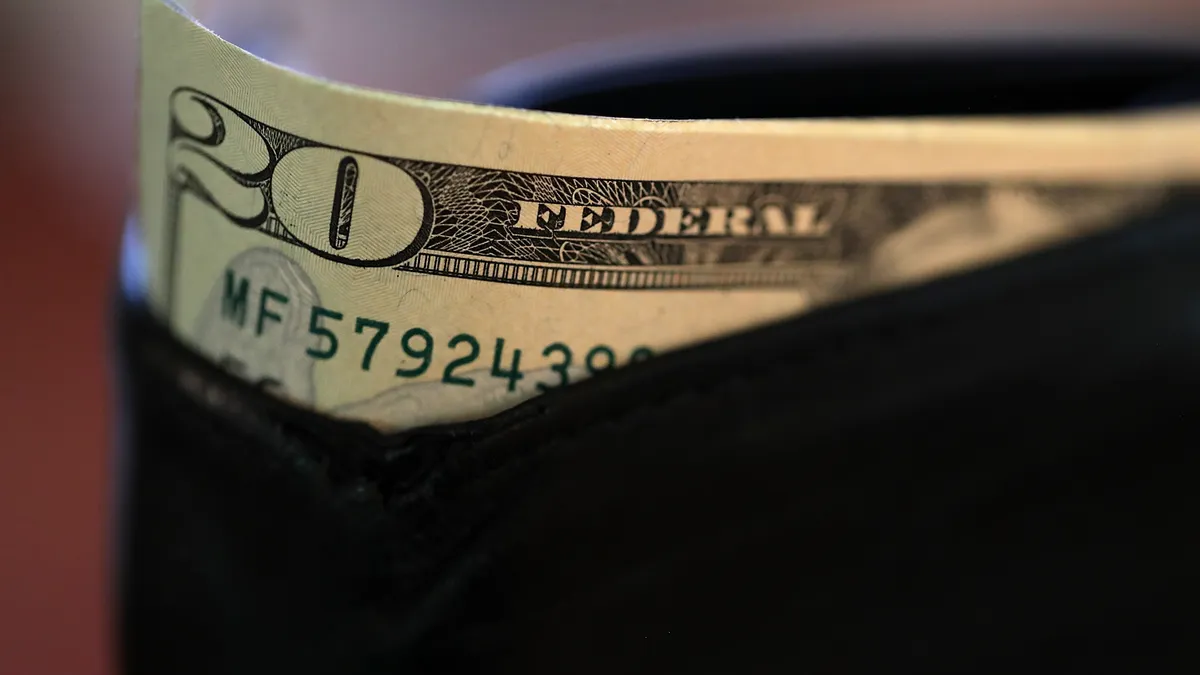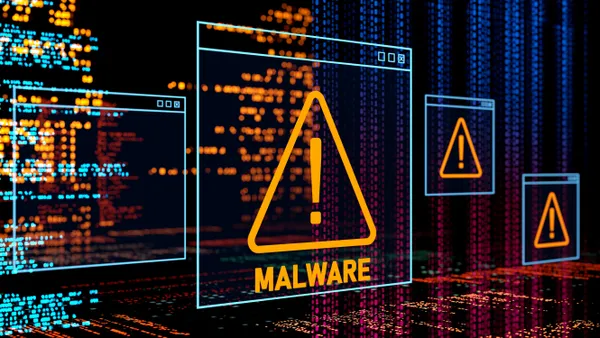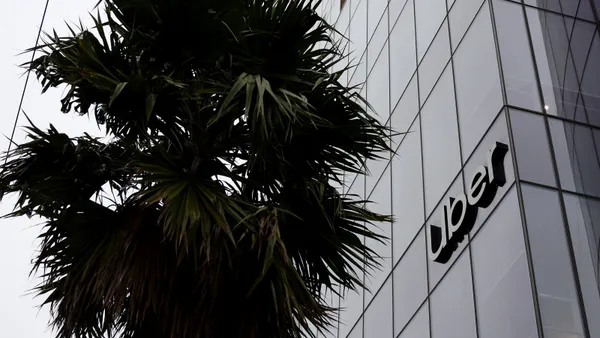Dive Brief:
- Criminals have swindled the government out of nearly $100 billion through fraudulent COVID-19 relief fund applications since the start of the pandemic in the U.S., the Secret Service said Tuesday in a press release announcing the appointment of a new national pandemic fraud recovery coordinator. The agency noted that the figure was based on two inspector general reports released earlier this year.
- The Secret Service named Assistant Special Agent in Charge (ASAIC) Roy Dotson, who is based in Jacksonville, Florida, as the national pandemic fraud recovery coordinator.
- Investigations by the Secret Service into unemployment insurance and Small Business Administration (SBA) loan and grant programs have led to the seizure of about $1.2 billion, and the return of about $2.3 billion fraudulently obtained via Automated Clearing House reversals, the government release said. About 100 people have been arrested in connection with such crimes, the agency said.
Dive Insight:
“The Secret Service currently has more than 900 active criminal investigations into fraud specific to pandemic-related relief funds,” Dotson said in Tuesday's release.
Individuals and organized criminal networks grabbed about $100 billion of funds the government made available through the Coronavirus Aid, Relief and Economic Security (CARES) Act. In particular, fraudsters targeted the Paycheck Protection Program (PPP) and Economic Injury Disaster Loans (EIDL).
For instance, the SBA’s inspector general discovered last month that the EIDL program disbursed nearly $3.7 billion to ineligible recipients after the agency failed to check borrowers' identifying details against the Treasury Department’s "Do Not Pay" (DNP) database.
That followed an October SBA IG report that concluded the agency paid $4.5 billion more than it should have when it disbursed EIDL grants to small businesses amid the start of the pandemic last year.
The SBA failed to establish a proper internal control environment by not requiring sole proprietors or independent contractors to disclose employer identification numbers (EINs) when applying for the grants (it asked for Social Security numbers instead), the October report said.
“The Secret Service has seen a huge uptick in electronic crime in furtherance of these fraud cases,” said Dotson said in the press release.
Dotson is also overseeing cryptocurrency investigations "involving the use of unsuspecting victims as money mules to move stolen funds from one account to another within the cyber arena," the release said.
Although the agency is traditionally associated with protecting government officials, the Secret Service has a long history of financial and cyber crime investigations.
The agency has recovered hundreds of millions of dollars in fraudulent funds through a coordinated recovery effort with companies, including digital payments giant PayPal and digital banking company Green Dot.
The Secret Service alerted the private sector to the illicit activity and invited companies to work with it to thwart the fraud, prompting some companies to investigate and cooperate with the agency, CNBC reported. That allowed the Secret Service to seize some $400 million that criminals sought to send through the two fintechs.
Green Dot proactively brings "fraud cases to the attention of the Secret Service as well as other government agencies and industry peers" and then partners with them "to address, mitigate and resolve" such cases, a company spokesperson told the network.
"Fraud prevention is paramount and we work around the clock and invest heavily to identify, block and address fraudulent activity as part of our commitment to protecting our customers,” the spokesperson added.












